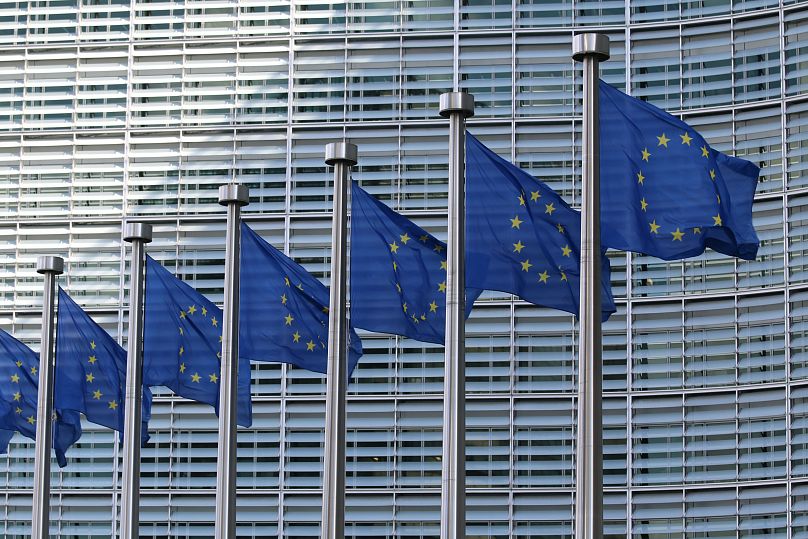Tech industry giants outspent big pharma and fossil fuel companies trying to win influence and shape policy in Brussels, a new study has found.
Google spends more on attempting to influence decision makers and shape regulations in the EU than any other company or organisation, a new study published on Tuesday has found.
 ADVERTISEMENT
ADVERTISEMENT
 ADVERTISEMENT
ADVERTISEMENT
The study, which compiled data submitted by companies to the EU Transparency Register up to mid-June this year, found that tech firms collectively dominate lobbying efforts in Europe, with hundreds of companies, business groups and associations all spending €97 million a year on attempting to influence EU institutions.
The tech sector now outspends the pharmaceutical, fossil fuel, finance and chemicals industries, according to the study released by Corporate Europe Observatory and Lobbycontrol.
"The rising lobby firepower of big tech and the digital industry as a whole mirrors the sectors' huge and growing role in society," the study said, as it called for the EU to strengthen lobbying rules and transparency.
Tech, big spender
The study found that 612 tech and digital sector companies, groups and associations spend more than €97 million annually lobbying on EU digital economy policies. Of those, over 20 per cent were US-based, with Chinese companies accounting for less than one per cent.
Google topped spending at €5.75 million, followed by Facebook at €5.5 million euros, Microsoft at €5.25 million, Apple at €3.5 million, Huawei at €3 million and Amazon in sixth place with €2.75 million, the study said.
Overall, 10 tech firms, Vodafone, Qualcomm, Intel, IBM, Amazon, Huawei, Apple, Microsoft, Facebook and Google accounted for over a third of the sector's lobbying spend in Europe.
Google and Huawei told Reuters that they submit their lobbying data to the EU transparency register.
"We have clear policies in place to protect the independence of the people and organisations we sponsor, including a requirement to disclose funding," Google said.
"The European Union has been and remains an important stakeholder for Microsoft. We seek to be a constructive and transparent partner to European policymakers," Microsoft said.
Facebook, Apple and Amazon did not immediately respond to Reuters requests for comment.
Tech companies buying access
Tech and digital companies focused their lobbying efforts on the EU's proposed Digital Markets Act (DMA) and Digital Services ACT (DSA), the study found.
The two pieces of EU legislation seek to control Big Tech's "gatekeepers" by applying stricter competition rules, forcing greater transparency in advertising and making them responsible for illegal content hosted on their platforms.
According to the study, some 75 per cent of the 271 meetings EU Commissioners held to discuss the DSA and DMA were with tech companies or their associated trade groups.
"The economic and political power of the digital giants is hefty, and they are not going to remain passive in the face of possible new rules that affect the way they conduct their business," said Tommaso Valletti, economics professor at Imperial College London and former chief economist of the Competition Directorate of the EU Commission.
"That‘s why the EU institutions urgently need to change the way they handle this lobbying and limit the power of big tech".
The study also highlighted the role played by think tanks and even the EU Parliament's political parties in promoting the tech industry's points of view.


















